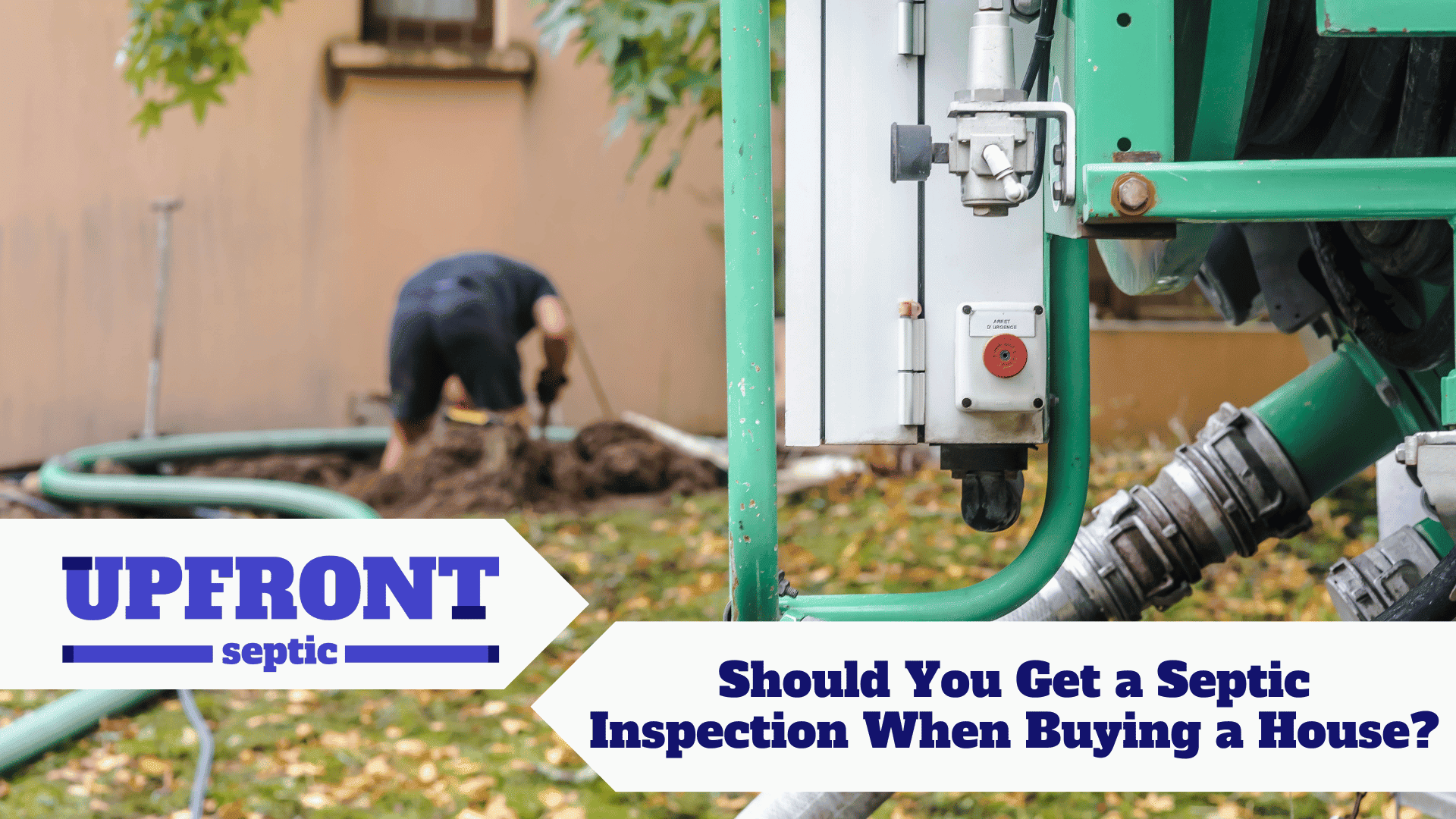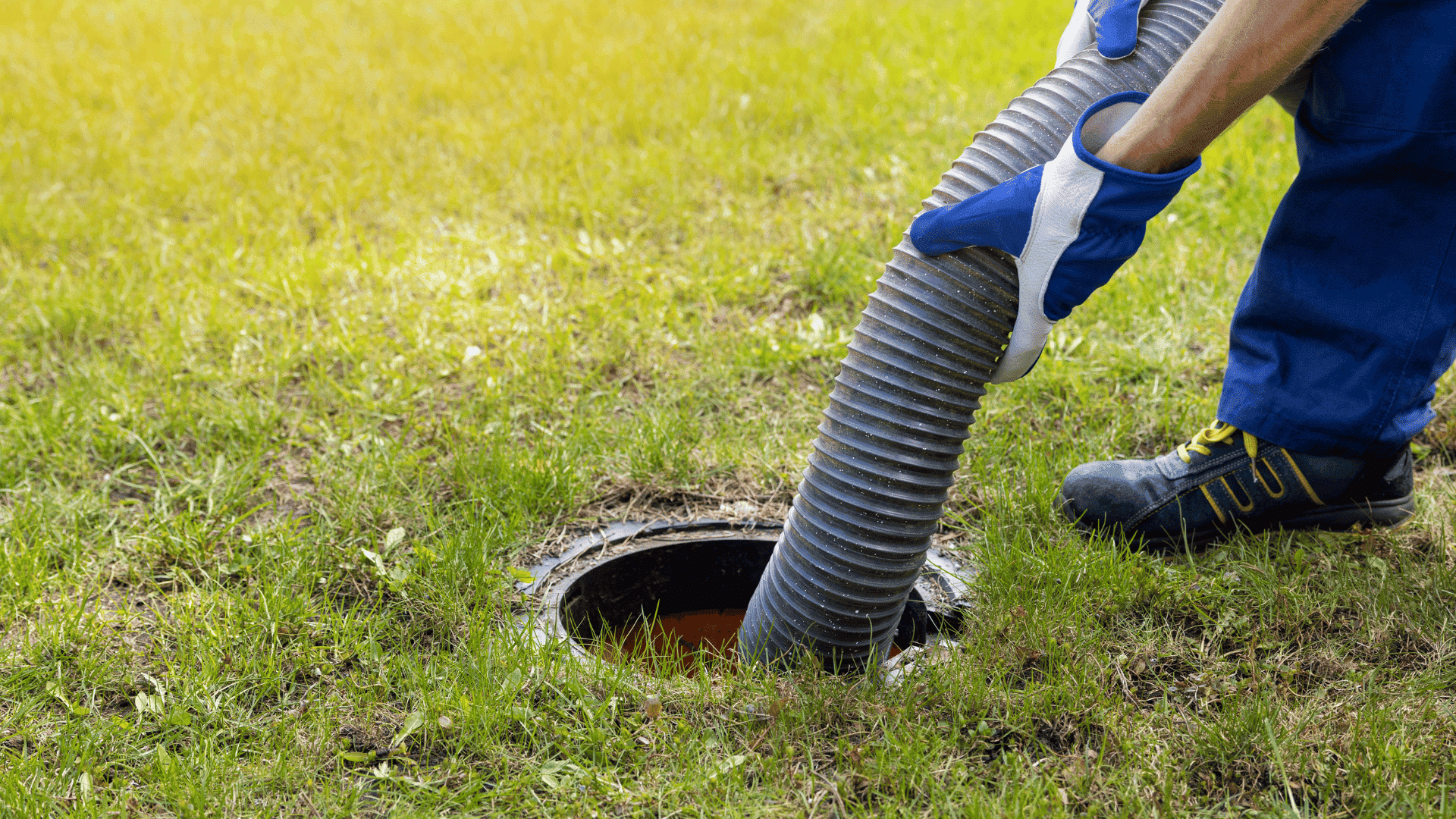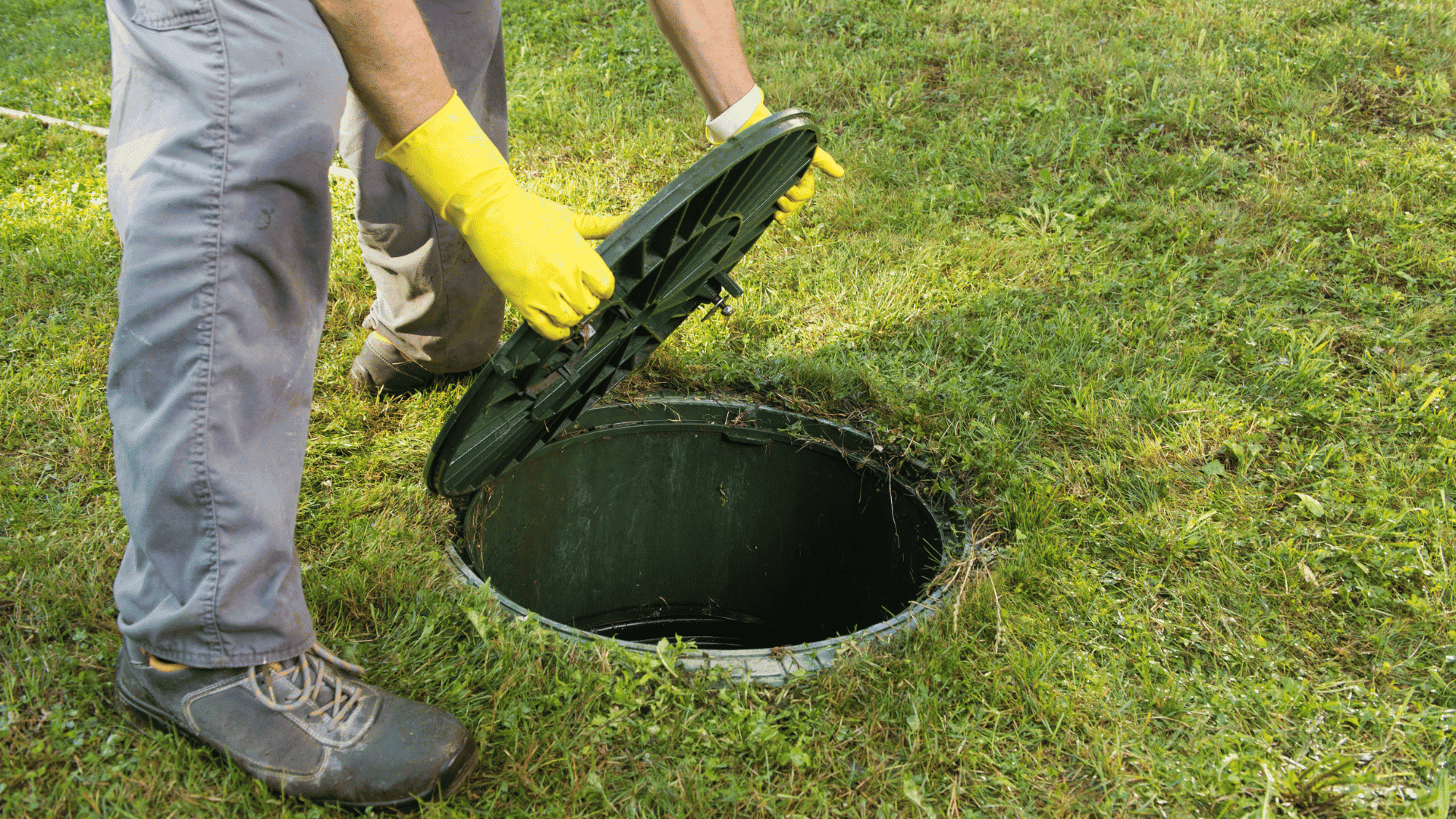
Should You Get a Septic Inspection When Buying a House?
Buying a home is an exciting and important milestone, but it comes with its own set of challenges and decisions. One critical area that many homebuyers overlook is the septic system. The question often arises: Should you get a septic inspection when buying a house? The answer is a resounding yes. Getting a septic inspection can save you from unexpected repairs and ensure that your new home is safe, functional, and cost-effective. In this blog, we’ll explore why a septic inspection is crucial, what it includes, and how it can protect your investment.
Why Septic Inspections Matter
When buying a home, most buyers focus on the house’s structure, foundation, and plumbing. However, septic systems are often forgotten, despite their crucial role in wastewater management. Without proper inspection, buyers may unknowingly inherit costly issues with the septic system that can result in hefty repair bills or even complete replacement.
A septic inspection is important because it helps identify problems early on. A system failure can result in unpleasant odors, expensive repairs, and even health risks from improperly treated wastewater. In this blog, we’ll explain why septic inspections are necessary and how they can save you money and stress in the future. If you’re asking yourself should you get a septic inspection when buying a house, it’s critical to understand the potential consequences of skipping this important step.
Understanding the Septic System: How It Works
Before we dive into why septic inspections are important, let’s take a moment to understand how a septic system works. A septic system is a self-contained wastewater treatment system that treats and disposes of the sewage from a home when it is not connected to a public sewer system. As per the EPA, septic systems, or decentralized systems, are utilized in 25% of homes across the United States and are integral to the nation’s wastewater infrastructure. Also read which houses have septic systems.
The system typically consists of the following components:
- Septic Tank: This is where the wastewater from the home is collected and stored. The solids settle to the bottom, while oils and grease float to the top, creating a scum layer.
- Leach Field: This is the area where treated wastewater (effluent) is dispersed and filtered by the soil.
- Distribution Box: This component helps distribute the effluent evenly to the leach field.
These components work together to ensure wastewater is treated and safely returned to the environment. However, like all systems, septic systems need maintenance and care to continue functioning efficiently. So, if you’re wondering should you get a septic inspection when buying a house, knowing the components and potential issues will help you understand the importance of having one done.
Why a Septic Inspection is Crucial Before Buying a House
When you ask yourself, should you get a septic inspection when buying a house, the answer lies in the potential risks involved. Septic systems are often hidden from sight, making it difficult to detect issues without a thorough inspection.
Here’s why a septic inspection is essential:
- Identifying Hidden Problems: A septic inspection can uncover problems like leaks, blockages, or system malfunctions that aren’t visible on the surface. These problems can escalate quickly if left unchecked, leading to costly repairs.
- Preventing Future Expenses: By identifying issues early, a septic inspection can help you avoid expensive repairs or replacements. Replacing a septic system can cost tens of thousands of dollars, so catching issues before purchase can save you a lot of money.
- Making Informed Decisions: Knowing the condition of the septic system allows you to make informed decisions about your purchase. You can negotiate with the seller for repairs, a lower price, or even decide to walk away from the deal. Ultimately, should you get a septic inspection when buying a house? Yes, because it helps avoid unexpected, costly problems down the road.
Common Problems Found in Septic Systems
Septic systems, if not properly maintained, can face several issues that affect their functionality. Some of the most common problems include:
- Blockages: These can occur in the pipes leading to or from the septic tank, which can cause wastewater to back up into the house.
- Leach Field Failure: If the leach field becomes clogged or fails, it can result in the system backing up or effluent surfacing in the yard.
- Aging Systems: Older septic systems, especially those installed 20 or more years ago, may require repairs or even complete replacement.
- Malfunctioning Pumps: Septic systems with pumps can face pump failures, which are often expensive to fix.
These problems not only affect the septic system but also the plumbing and water flow in the home. A septic failure can lead to slow drains, foul odors, and even sewage backup into the house, all of which require immediate attention. So, when asking should you get a septic inspection when buying a house, the answer is clear: the cost of identifying these issues early is much less than the cost of dealing with them later.

What a Professional Septic Inspection Includes
A professional septic inspection is a comprehensive process that checks the overall health of the septic system. It is much more than a simple visual inspection.
Here’s what a professional septic inspection typically includes:
- Sludge and Scum Levels: The inspector will check the sludge and scum levels in the tank to ensure they are within normal limits. High levels of sludge can indicate that the tank needs pumping.
- Flow Test: This test helps verify that wastewater is flowing properly through the system. If the water backs up or moves too slowly, it may indicate blockages or other issues.
- Leach Field Inspection: The inspector will look for signs of failure, such as wet spots or foul odors around the leach field, which can indicate a problem with the drainage system.
- System Age and Compliance: The inspector will assess whether the system is up to code and if it is reaching the end of its expected lifespan.
- Dye Test: In some cases, a dye test is performed by introducing a dye into the system and observing where it ends up. This helps identify leaks in the system.
By conducting these tests, a professional septic inspection can provide a thorough assessment of the septic system’s condition and help you make an informed decision. If you’re still asking yourself, should you get a septic inspection when buying a house, these comprehensive steps should convince you to get one.
The Steps to Take Before Scheduling a Septic Inspection
Before you schedule a septic inspection, there are a few important steps you should take to ensure the process goes smoothly:
- Ask the Seller for Maintenance Records: Request information on the system’s history, such as when it was last pumped or if there were any repairs. In many states, septic inspections are mandatory within a few years of purchasing or selling a home.
- Understand the System’s Location: Make sure you know where the septic system components are located, as this will help the inspector perform their job more efficiently.
- Check for Obvious Signs of Issues: Look for any visible signs of problems, such as slow drains, bad odors, or wet spots around the leach field.
Your plumbing company, Upfront Septic & Plumbing, can help guide you through this process by offering advice on what to look for and providing any necessary pre-inspection services. If you’re still wondering should you get a septic inspection when buying a house, we are here to provide guidance.
The Cost of Septic Inspections and What to Expect
The cost of a septic inspection varies depending on location, the complexity of the system, and the inspection level. On average, you can expect to pay between $300 and $600 for a standard inspection. However, the cost of an inspection is much lower than the potential cost of repairing or replacing a failing septic system.
Here’s a breakdown of typical costs:
- Basic Inspection: A visual inspection and basic flow test typically cost between $300 and $500.
- Advanced Inspection: A more detailed inspection, including a dye test and leach field assessment, can cost between $500 and $1,000.
While these costs may seem significant, they are minimal compared to the potential costs of system repairs, replacement, or property damage caused by untreated wastewater. When asking yourself should you get a septic inspection when buying a house, remember that the cost of an inspection is small compared to the potential costs of neglecting the system.
What Happens If the Septic System Fails Inspection
If a septic system fails the inspection, there are several potential outcomes:
- Negotiate with the Seller: You may be able to negotiate the cost of repairs or ask the seller to make the necessary fixes before closing.
- Request a Price Reduction: If the system requires significant repairs, you might request a price reduction to cover the cost of those repairs.
- Walk Away from the Deal: If the septic system is beyond repair or the costs of fixing it are too high, you may decide to walk away from the purchase.
Upfront Septic & Plumbing can assist in handling any repairs or evaluations needed if the septic system fails the inspection, offering expertise and cost-effective solutions. When considering should you get a septic inspection when buying a house, knowing what to do if the system fails is critical.
Post-Purchase Responsibilities: Maintaining the Septic System
Once you purchase a home with a septic system, regular maintenance is essential to keep the system functioning properly and avoid costly repairs. Proper maintenance includes:
- Regular Pumping: Your septic tank should be pumped every 3 to 5 years, depending on usage.
- Leach Field Care: Avoid planting trees near the leach field and ensure that wastewater doesn’t overflow into the area.
- Monitoring System Performance: Regularly check for signs of system failure, such as slow drains or foul odors.
Upfront Septic & Plumbing offers ongoing septic system inspections, maintenance, and repair services to ensure your system remains in good condition. If you’ve ever wondered should you get a septic inspection when buying a house, maintaining the system post-purchase is just as important.

Protecting Your Investment with a Septic Inspection by Upfront Septic
In conclusion, should you get a septic inspection when buying a house? Absolutely! A septic inspection is an essential part of the home buying process that can protect your investment, save you money, and ensure you are making a well-informed decision. Regular maintenance and timely repairs will keep your septic system in good working condition for years to come.
If you’re looking for expert septic tank servicing for both aerobic and anaerobic systems, Upfront Septic & Plumbing is here to help. We provide comprehensive septic inspections, repairs, and maintenance for all types of septic systems, including conventional, chamber, drip distribution, aerobic, and bio systems. Whether your septic tank is concrete, metal, fiberglass, or plastic, our team is ready to serve you.
For more information or to schedule an inspection, call us at (253) 364-7416 or book your plumbing appointment online. We’re available 24/7, 365 days a year, to ensure your septic system is in top condition.

